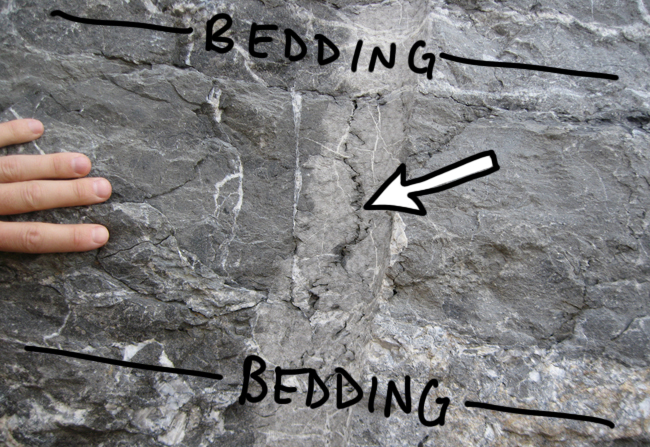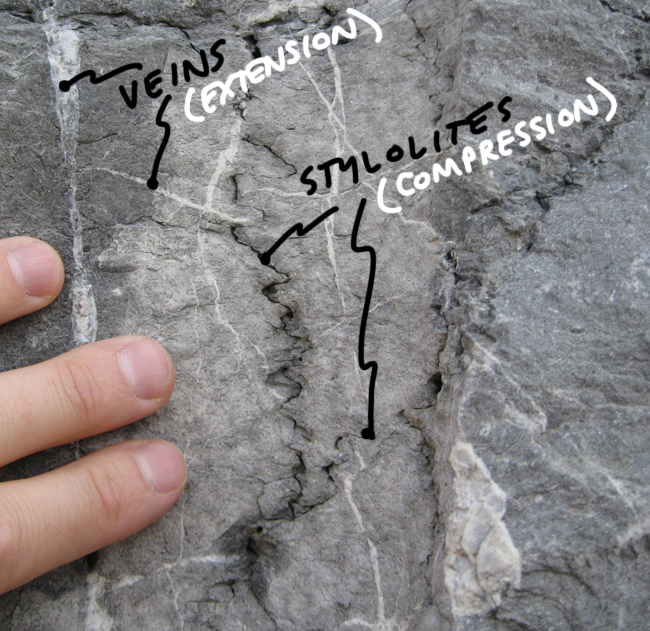Saturday I posted some images of bedding-parallel stylolites from one member of the Devonian-aged Helderberg Formation (or one formation in the Helderberg Group; I’m not sure whose stratigraphy is preferable in this case). Here we are, further up-section, and you can see both bedding-parallel and non-bedding-parallel stylolites overprinting the limestone:


Bedding-parallel stylolites can be understood readily in terms of sedimentary loading (compression from above), but non-bedding-parallel stylolites imply a maximum pressure direction that came not from above — but instead, from the sides. In other words, it’s a tectonic stress. These are likely the signatures of Alleghanian mountain-building in the late Paleozoic.

Interestingly, this same outcrop includes extensional veins filled with white calcite – these rocks have been both squeezed and stretched in more or less the same direction. I should assign an Honors student to go measure their orientations in detail, and check for overprinting relationships (cross-cutting relationships) between the veins and the stylolites.

Happy Monday – back at work!

Which way is East on those non-compressional stylolites? I remember stylolites down about 10,500 feet in the Mississippi Solid (Mississippian) or the middle Hunton Formation (Devonian) around Kingfisher, OKla. That was 1980-1983 during the oil boom and I was working for Gulf Oil (now part of Chevron-Texaco).
Around 1983-1986 a suite of regional cross-sections showed imbricate overthrusting, of the Appalachian Mountain Range in West Virginia.
Thanks for you outcropping visit. I have been in Oregon since 1985 and am forgetting some of my familiar stratigraphy from PA-NJ-NY. This was good. Strike n’ Dip and Lineate away!
Left, -ish… 🙂